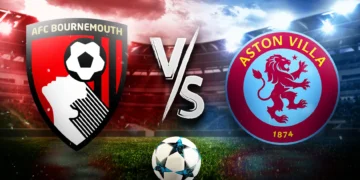When people think of sports journalism in France, one name consistently rises above the rest: L’Equipe. For decades, this iconic publication has been more than just a daily read; it has become a cultural staple, a trusted authority, and a passionate voice for millions of sports fans, both in France and abroad. But how did L’Equipe grow into such a powerhouse, and what makes it so unique in a crowded field of sports media?
Contents
The Origins of a Legend
The roots of L’Equipe trace back to 1946, emerging from the ashes of a publication called L’Auto, which was shut down after World War II due to its association with the Vichy regime. Its successor, L’Equipe, inherited not only the mission of chronicling the sporting world but also the passion, storytelling, and commitment that would set it apart.
From the very beginning, L’Equipe aimed to do more than report scores. It sought to explain, analyze, and celebrate sports in all their human, emotional, and technical dimensions. Whether covering football, cycling, rugby, or the Olympics, L’Equipe has always made storytelling its priority.

A Cultural Institution
What sets L’Equipe apart from many other sports publications is its deep connection to French identity and culture. While other papers may simply report on a match, L’Equipe paints a narrative. It dives into the psyche of the athlete, the strategy behind the coach’s decisions, and the societal implications of a victory or defeat.
Take the Tour de France, for example. L’Equipe doesn’t just cover the race — it lives it. That makes sense, given that its predecessor, L’Auto, actually created the Tour de France in 1903 as a way to boost newspaper sales. That historic link endures today, with L’Equipe maintaining unparalleled access and insight into the event, offering readers coverage that’s equal parts analysis, poetry, and national pride.
Football Frenzy and Beyond
Of course, football is the king of sports coverage, and L’Equipe has made it an art form. From Ligue 1 to the World Cup, its journalists provide coverage that is informed, impassioned, and often unflinching. They are not afraid to criticize when necessary, nor do they shy away from praise when it’s due. French football legends like Zinedine Zidane and Kylian Mbappé have all graced its front page, sometimes hailed as heroes, other times questioned as icons under pressure.
But L’Equipe goes beyond football. Tennis, athletics, handball, judo, motorsports — they all find a home in its pages. The diversity of sports covered demonstrates the publication’s commitment to celebrating athletic excellence in all forms, not just the most commercially successful.
Digital Evolution
In the digital age, even the most respected print publications must evolve or risk irrelevance. L’Equipe has embraced this challenge with characteristic flair. Its website and mobile app offer breaking news, live match updates, video highlights, opinion pieces, and interactive features. With podcasts, streaming content, and even a television channel (L’Equipe TV), the brand has seamlessly transitioned into a multimedia empire while preserving its editorial integrity.
What’s remarkable is how L’Equipe has managed to strike a balance between tradition and innovation. The iconic layout and typography of its print edition remain a nostalgic comfort to longtime readers, while the sleek digital design appeals to younger, tech-savvy fans.
Storytelling That Sticks
One of the enduring strengths of L’Equipe is its ability to find the human story behind the headlines. Whether it’s the redemption arc of a fallen star, the rise of an underdog, or the quiet struggles of an unsung hero, the publication invests in long-form journalism that connects with readers on a personal level.
Many of its journalists are revered for their prose, earning accolades and respect in the literary world. Sports, in the pages of L’Equipe, become not just games, but metaphors for life, struggle, identity, and triumph.
Criticism and Controversy
Being at the top comes with its share of scrutiny, and L’Equipe is no exception. Over the years, it has faced criticism for sensationalism, alleged bias, or harsh criticism of athletes. Some players and coaches have even refused to speak to its reporters after feeling unfairly treated.
Yet, these moments only underscore the influence of L’Equipe. It matters. What L’Equipe says has the power to shape public opinion, influence national conversations, and even impact careers. With great influence comes great responsibility — and L’Equipe takes that role seriously, even if it occasionally missteps.
L’Equipe as a Community
What perhaps best defines L’Equipe is its sense of community. It’s not just a publication — it’s a daily ritual for millions. Fans gather around its pages (print or digital) to argue, cheer, reflect, and dream. It’s where triumphs are immortalized and where defeats are mourned collectively.
Its comment sections, forums, and social media platforms are bustling with passionate fans who engage with the content and with each other. It creates a space where the love of sport brings people together, whether they’re debating VAR decisions or reminiscing about historic Olympic moments.
The Future of L’Equipe
Looking ahead, L’Equipe faces the same challenges confronting all media: staying relevant, maintaining trust, and generating revenue in a rapidly changing landscape. But if history is any guide, L’Equipe is more than up to the task.
Its blend of heritage, quality journalism, adaptability, and emotional resonance gives it a distinct edge. It remains the gold standard of sports journalism in France — and a model of excellence for the rest of the world.
Conclusion
In a world overflowing with fast content and fleeting headlines, L’Equipe reminds us of the value of thoughtful, passionate journalism. It’s not just about who won or lost — it’s about why it matters. It’s about the joy, the pain, the perseverance, and the pride that sport can bring.
For those who love sports — truly love them — L’Equipe isn’t just a source of news. It’s a trusted companion, a storyteller, and a window into the soul of sport itself.































